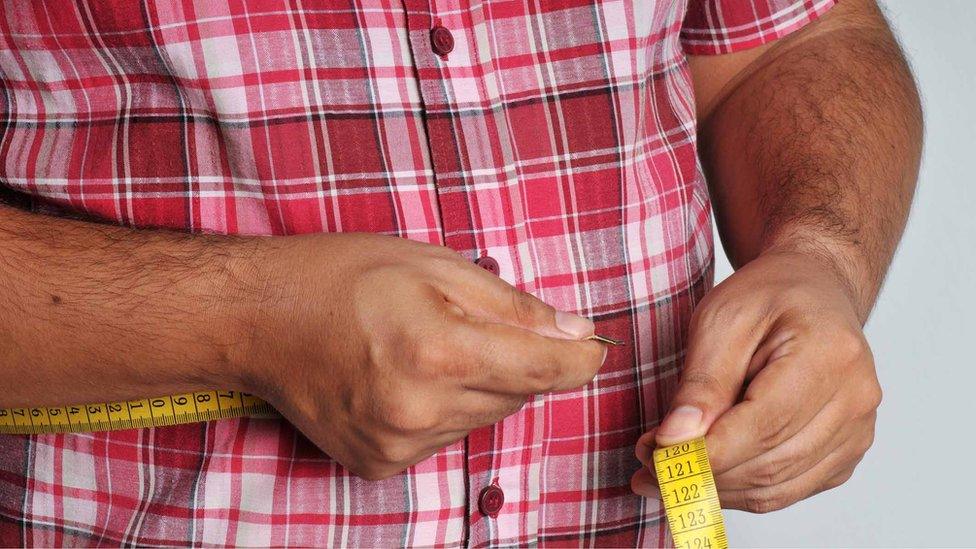Coronavirus: 'Scared' patients urged to get vaccinations
- Published
- comments
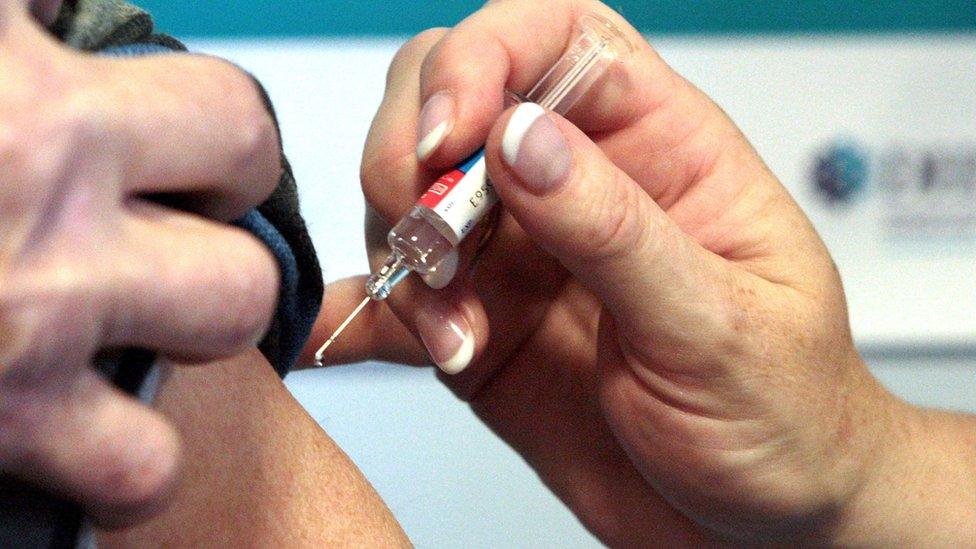
People are being urged to be up to date with their vaccinations
Health bosses are hoping to reassure "scared" patients it is safe to go to GP surgeries to get vaccinations and flu jabs amid the coronavirus pandemic.
Lockdown led to a rolling programme of vaccinations for conditions likes pneumonia and shingles halting.
Now people are being urged to get the jabs they missed, as well as flu vaccines when they become available next month.
There are some fears winter may lead to more Covid-19 cases.
Vulnerable groups are being warned they could put themselves at greater risk if they fall ill with conditions such as flu and get coronavirus.
"Vaccinations are some of the most important things that you can do to prevent against those preventable diseases," said Teresa Owen, executive director of public health for Betsi Cadwaladr University Health Board.
"They are so important and we want people to optimise their health and, hopefully, we'll reduce the risk of having two conditions at the same time."
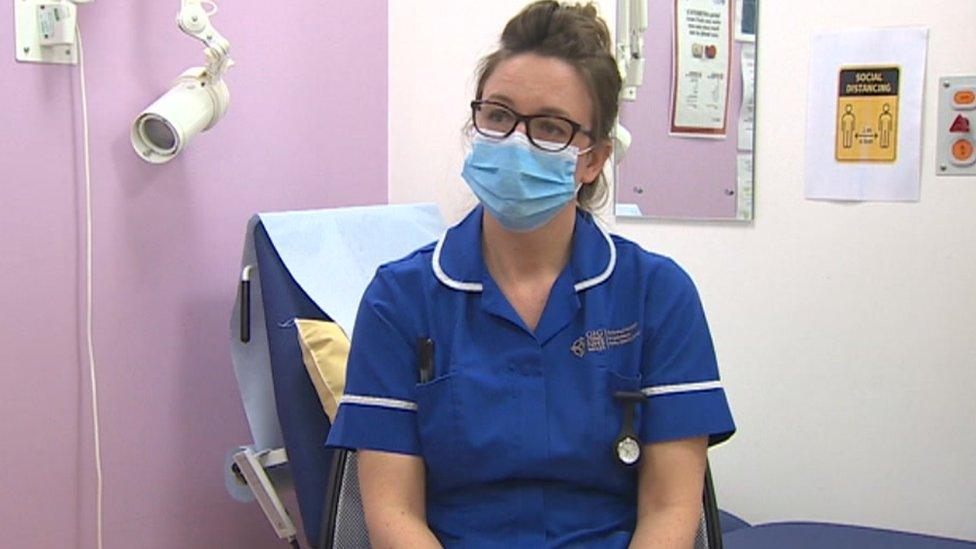
Nurse Colette Hughes said vaccination clinics will look different due to extra safety measures
Anyone aged 70 to 79 can have a vaccination against shingles, while a vaccine is also available for older people against pneumonia.
Young people heading off to university are also being urged to make sure they have all the available vaccinations aimed at preventing meningitis.
Meanwhile, Wales' largest ever flu campaign will allow more people to obtain a vaccination from this autumn.
The Welsh Government has set a flu vaccination target of 55% of people under the age of 65 who are in a clinical risk group.
But the latest figures from 2019 show none of the 22 Welsh local authorities hit that target.
Ms Owen hopes things will be different this year.
"I think there's more awareness of vaccinations this year," she said.
"And we certainly want to build on that by making it very easy for people to get their vaccinations."
What will surgeries be like for vaccinations?
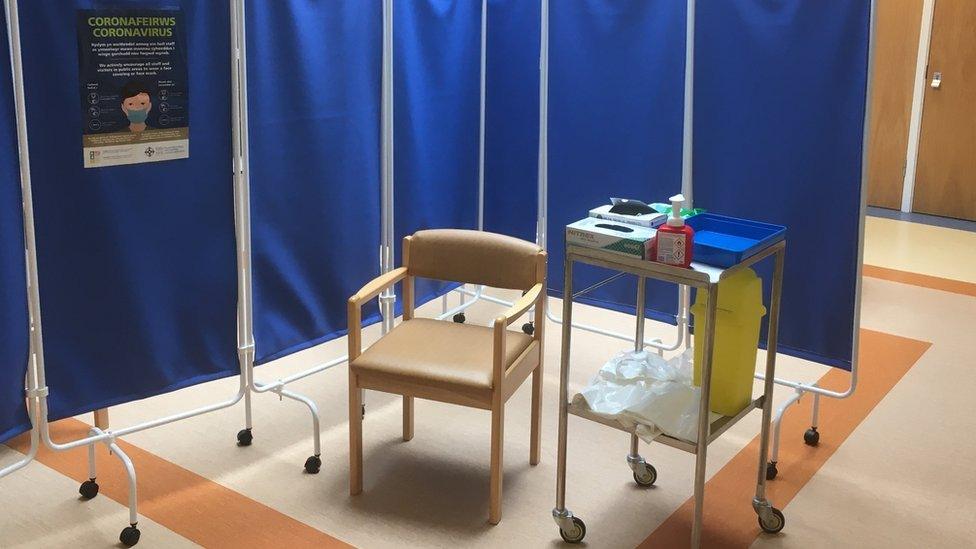
Special treatment areas have been set up for vaccinations at Panton Surgery in Holywell
The Panton Surgery in Holywell, Flintshire, is one practice where staff are keen to reassure the public it is safe for them to receive their vaccinations.
Following the lockdown halting of vaccinations for conditions likes pneumonia and shingles, it is now trying to deal with a backlog of up to 200 patients.
People are now being urged to come forward and get the jabs they missed.
"People are scared," said Colette Hughes, an advanced nurse practitioner.
But, she added, everything had been done to reassure patients and to keep them and staff safe.
"It is safe and it is encouraged [to attend] but it will look different," she said.
Appointments will mean that numbers will be limited at any one time, and as well as social distancing, patients will be asked to wear masks while they are at the centre.
They will be expected to leave the building as quickly as they can once they have completed a 10 minute wait to ensure there are no side effects from their vaccination.
"When we do our flu clinics, you'll no longer come into our room," said Ms Hughes.
"We'll set up stations in the waiting area with screens for confidentiality and dignity.
"So, it will all look just slightly different but it's there to protect us as staff, the patients that are coming in and it's worked so far."
How have patients found it?
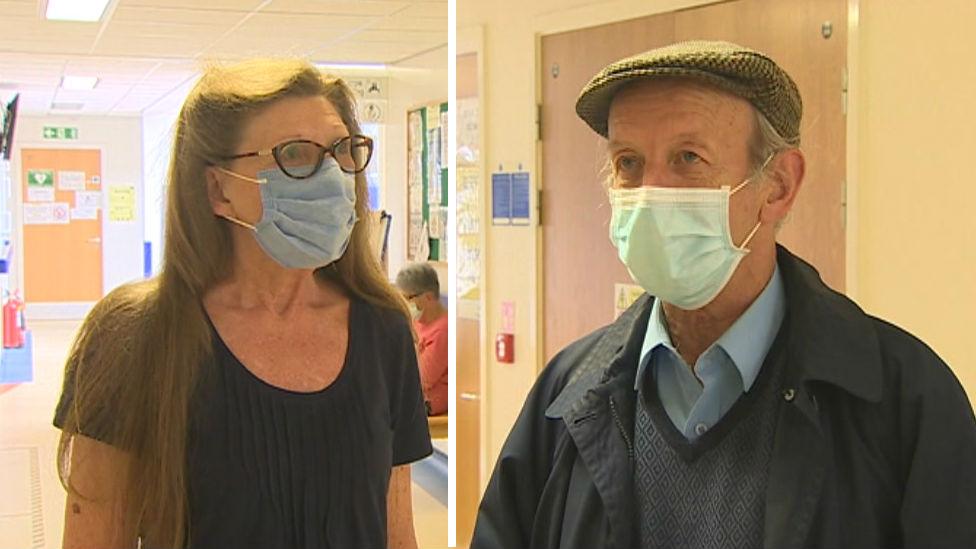
Patients Beryl McLaren and Roger Vacey have just received their vaccinations
Patient Beryl McLaren, aged in her 70s, admits she had her concerns when she was contacted and asked to attend for a vaccination against pneumonia.
"They seemed to have got it organised quite well," she said.
"Being an older person, in the vulnerable group, I tend to take more care and anything I can do to protect myself, I will do."
Roger Vacey attended the clinic to get a shingles vaccine.
Now 71, he's also had the flu jab every year since he became eligible for it at the age of 65.
"You've probably got to get all the vaccinations you can," he said.
"If it helps to protect you, then all the better, isn't it?"

TESTING: Who can get a test and how?
YOUR QUESTIONS: Our experts have answers
LOOK-UP TOOL: How many cases in your area?
GLOBAL SPREAD: Tracking the pandemic
THE R NUMBER: What it means and why it matters

- Published26 November 2020
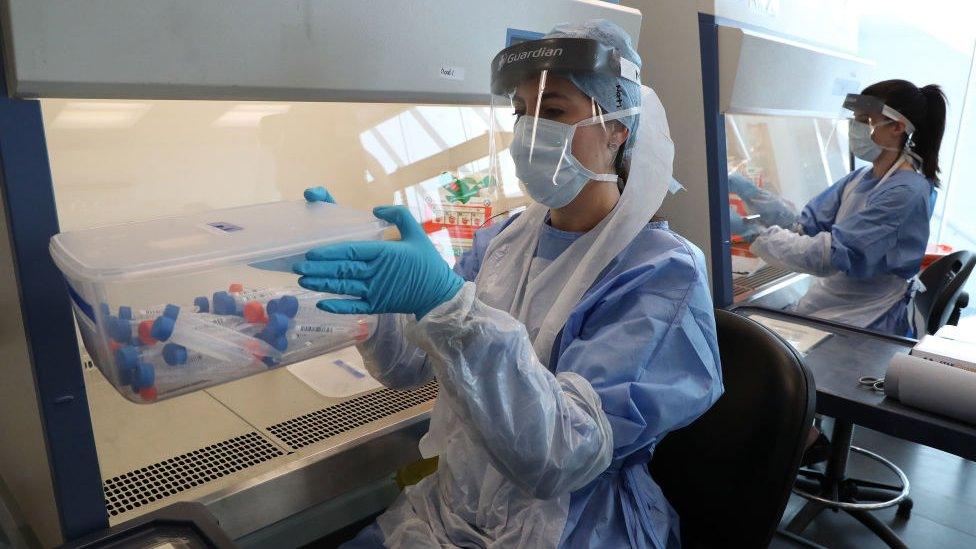
- Published15 March 2022
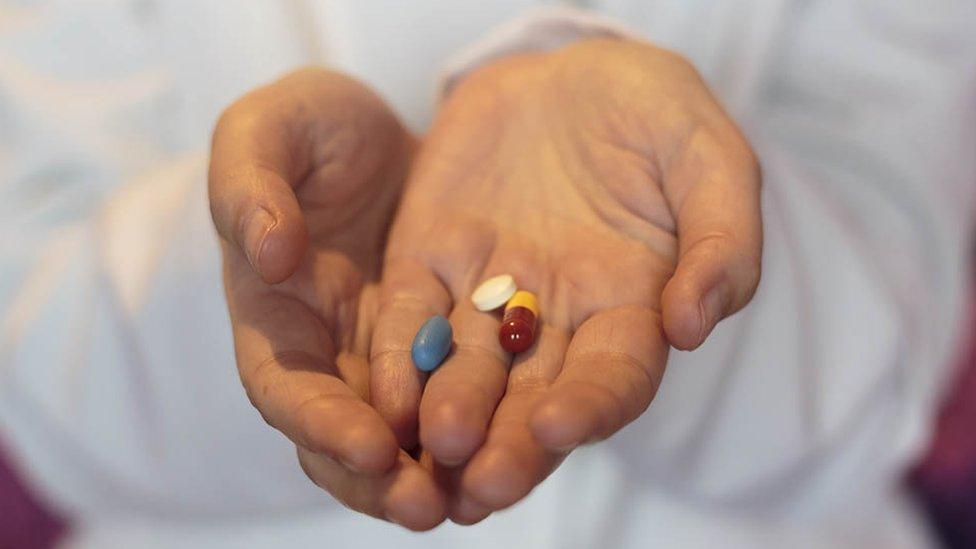
- Published20 October 2020
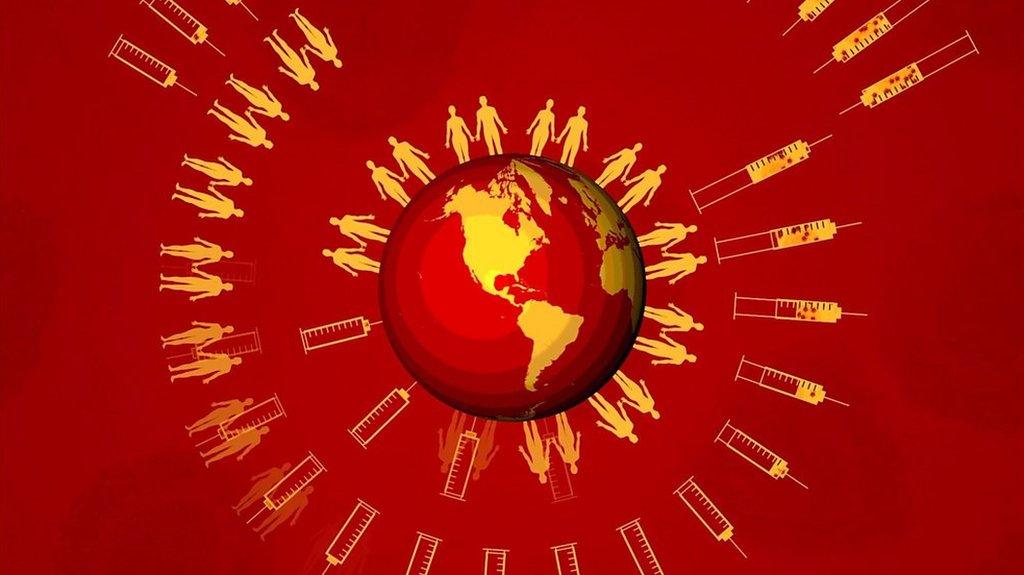
- Published22 August 2020
- Published17 August 2020

- Published24 July 2020
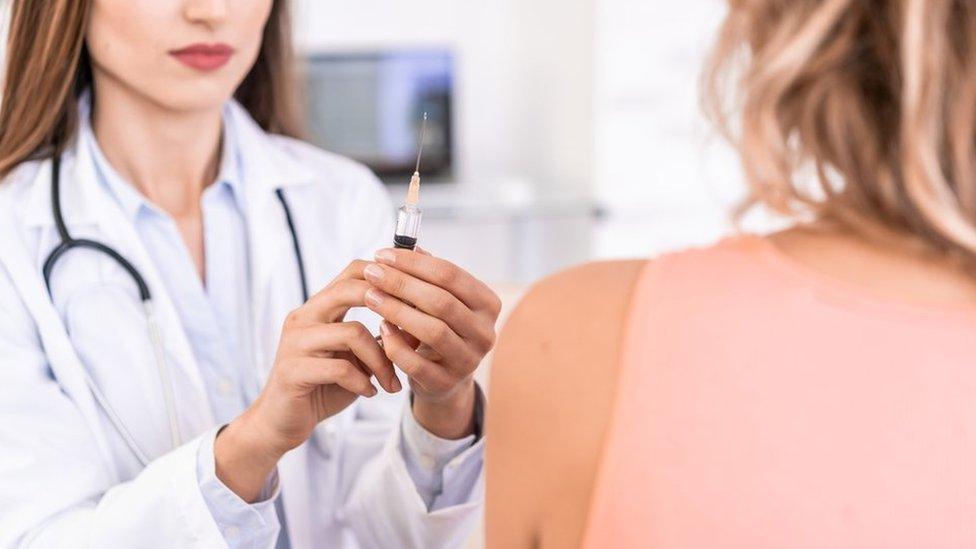
- Published23 July 2020
